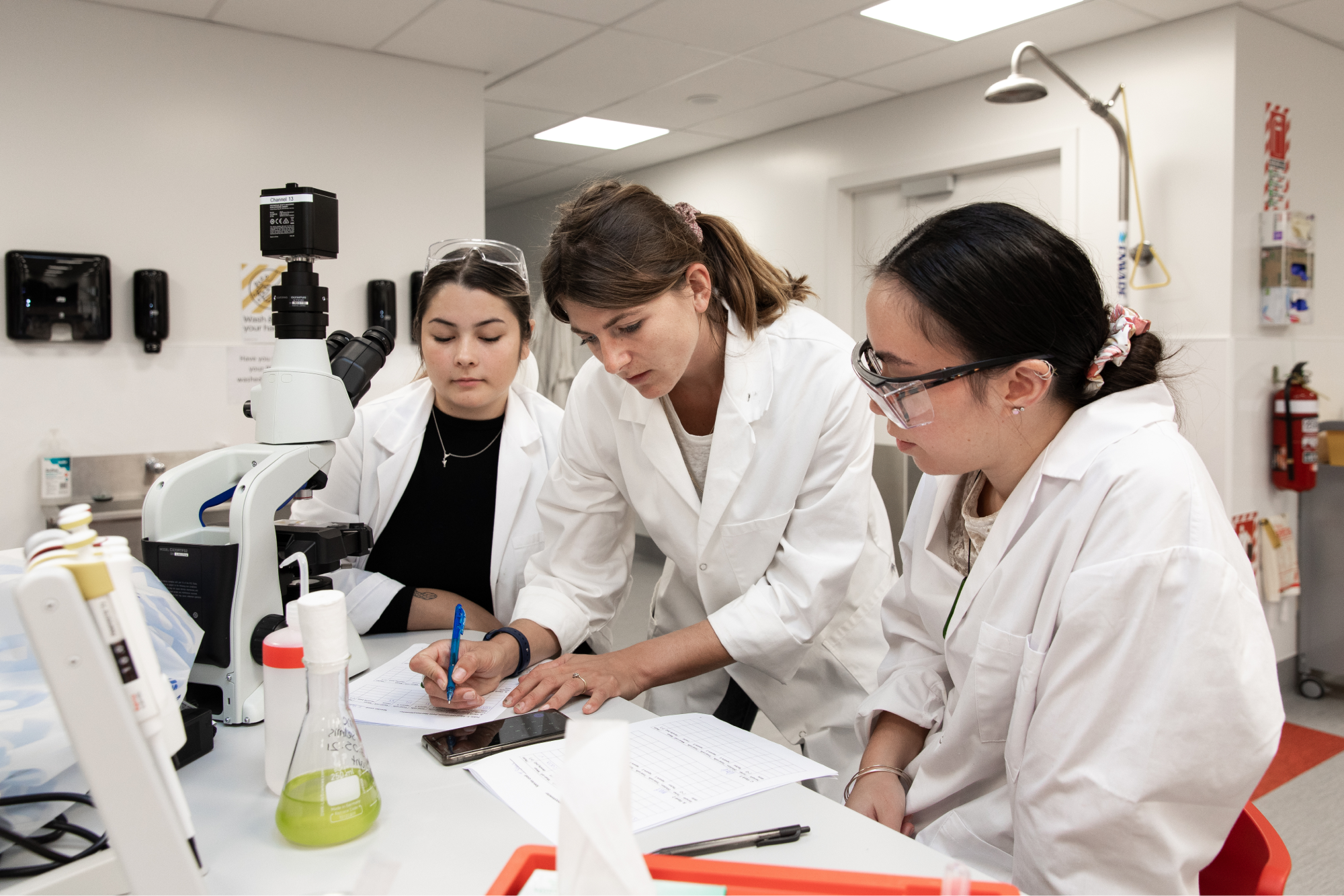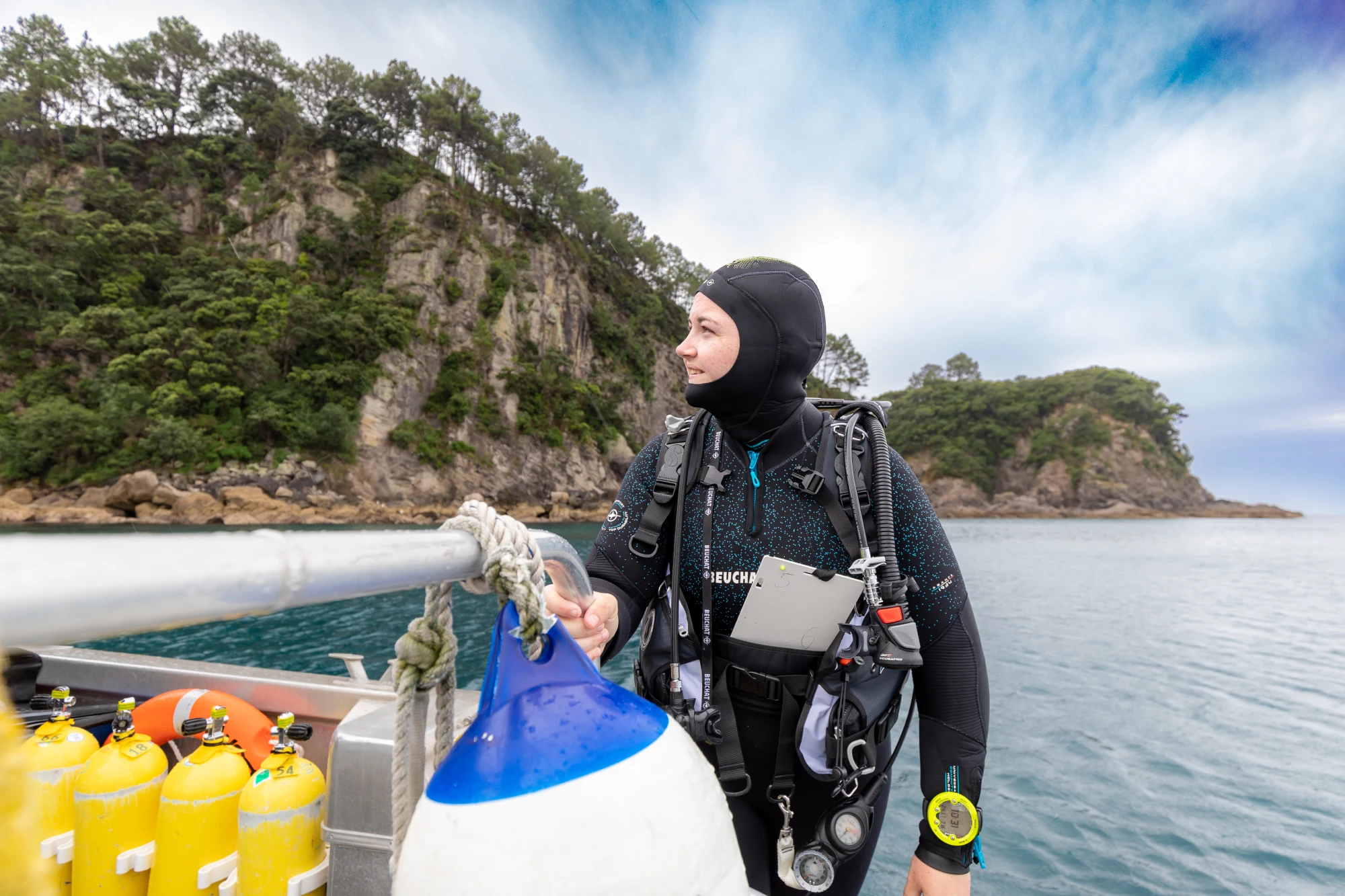PhD and Doctoral
Explore higher research degrees at University of Waikato. Get guidance on your doctoral journey and thesis preparation. Join workshops for research skills.

Higher research degrees
The information on these pages is for students enrolled in doctoral (PhD, EdD, DHSc, SJD, DMA) or Master of Philosophy programmes. Students planning to undertake one of these programmes, should refer to the Higher Research Degrees Application Process.
In this section, we provide guidance relevant to the doctoral journey and useful information about procedures and requirements — including guidance on thesis preparation and exams. They should be viewed alongside the University Calendar, which sets out the regulations for higher research degrees.
Te Mata Kairangi School of Graduate Research provides administrative support for enrolled students, with Higher Research Degree Advisors assisting students and their supervisors through every stage of research — from enrolment to examination and, finally, submitting theses.
The school also holds workshops and events to hone your research and communication skills.

PhD and higher degree qualifications
The University offers supervised research degrees through the Master of Philosophy, Doctor of Philosophy, the Doctor of Juridical Science, the Doctor of Musical Arts, and professional doctorates — the Doctor of Education and the Doctor of Health Science.

Apply for a PhD or higher degree
Open up exciting new employment opportunities — not just in academia, but in government, consulting, research institutes, community organisations and much more — with a PhD degree or other Higher Degree.

Current students: early stage
If you have just enrolled and are preparing your full research proposal and ethics application, or have recently reached confirmed enrolment and are completing your first six-monthly progress report.

Current students: mid stage
If you are in the data gathering and analysis phase of your research. Your personal or study circumstances may have changed, or you are looking for options to alter your enrolment.

Current students: submission and examination
If you are due to submit your thesis for examination or completion, or are currently under examination. Start communicating about your research to grow its impact and your profile.

Scholarship finder
The University and our partners offer a range of scholarships and awards to assist students with fees and living expenses — and to support academic and research excellence. Use our Scholarship Finder to discover the right one for you.

Māori ki Waikato
Māori ki Waikato nurtures a diverse community across all disciplines by offering a stimulating environment for both enrolled and prospective Māori and Indigenous doctoral students from any tertiary institution and providing vital networking opportunities.

Pacific at Waikato
We are committed to the success of Pacific learners, their families, and communities. We want all of our students to imua. Wherever they are now, whether honours student or the first to go to university, we want them to go forward and lead from the front.

CSC at Waikato
Waikato partners with the China Scholarship Council to support Chinese PhD students with tuition, a living stipend, and full doctoral support in a welcoming research environment.

Student support services
Need a little extra support? From career advice to health and wellbeing resources, explore our student services to see what’s available.

Three Minute Thesis
The Three Minute Thesis competition gives doctoral research students an opportunity to present their findings to an audience in just three minutes.

Ethical and legal considerations
Find information on how to apply for ethical approval, getting an embargo for your research and details on the University’s Intellectual Property Policy.

Postgraduate researcher development programme
The University of Waikato offers a wide range of training opportunities to support you on your journey as a research scholar. Find out about events available for early, mid and late-stage researchers, or take a look at what's coming up.
Te Mata Kairangi | School of Graduate Research
The School of Graduate Research manages student enquiries related to all University scholarships, and application and enrolment for PhD, EdD, DHSc, DMA, SJD, MPhil, and Higher Doctorate doctoral degrees.
Te Mata Kairangi | The School of Graduate Research
Postal address
Courier address
International applicants
Appeals and complaints
Higher Degrees Facebook groups
Higher research degree candidates currently enrolled at the University can join our Higher Degrees at Waikato University Facebook group to communicate with fellow doctoral students, as well as receive updates and information from the School of Graduate Research on upcoming events and workshops.
Join the University of Waikato Scholarships Facebook page to receive updates and information related to scholarships and funding opportunities the University.